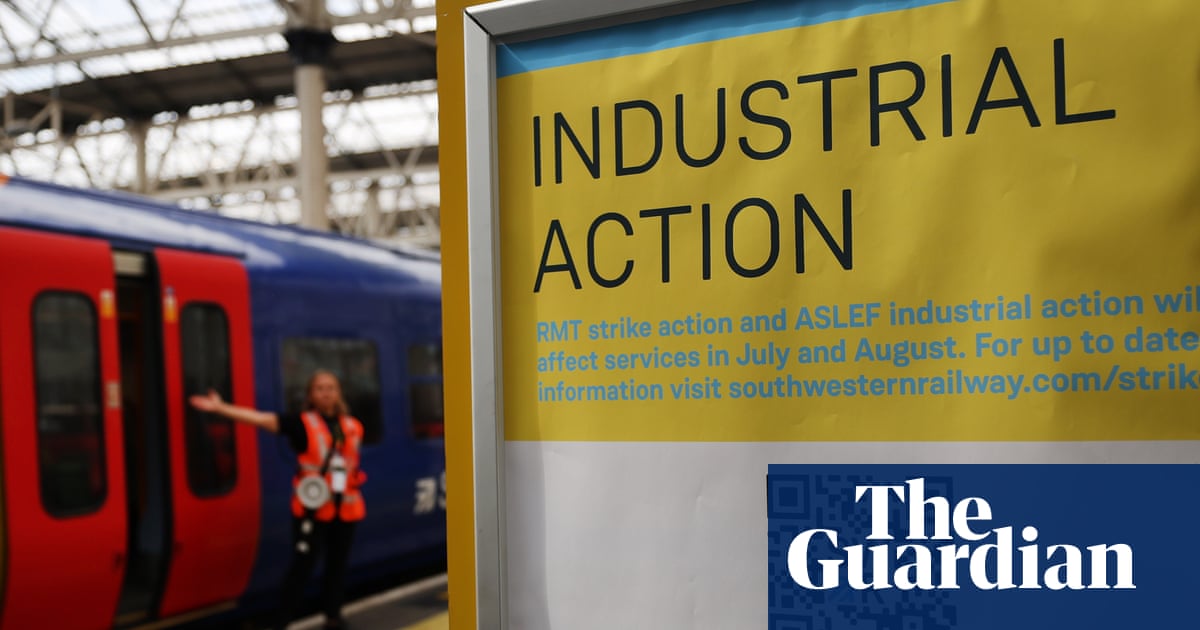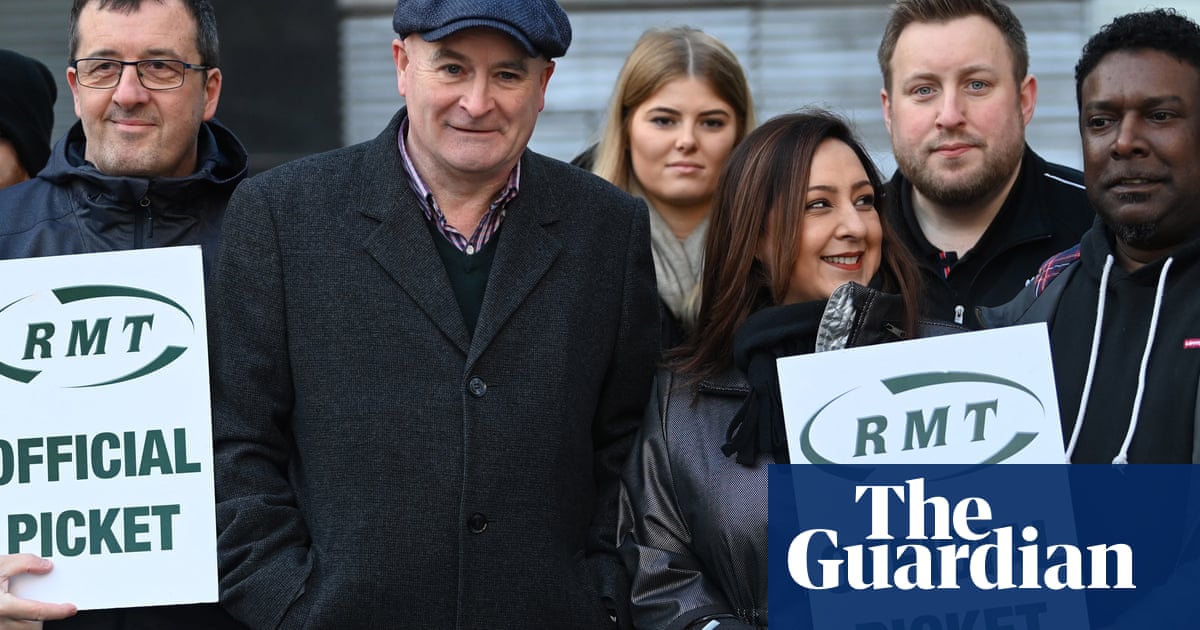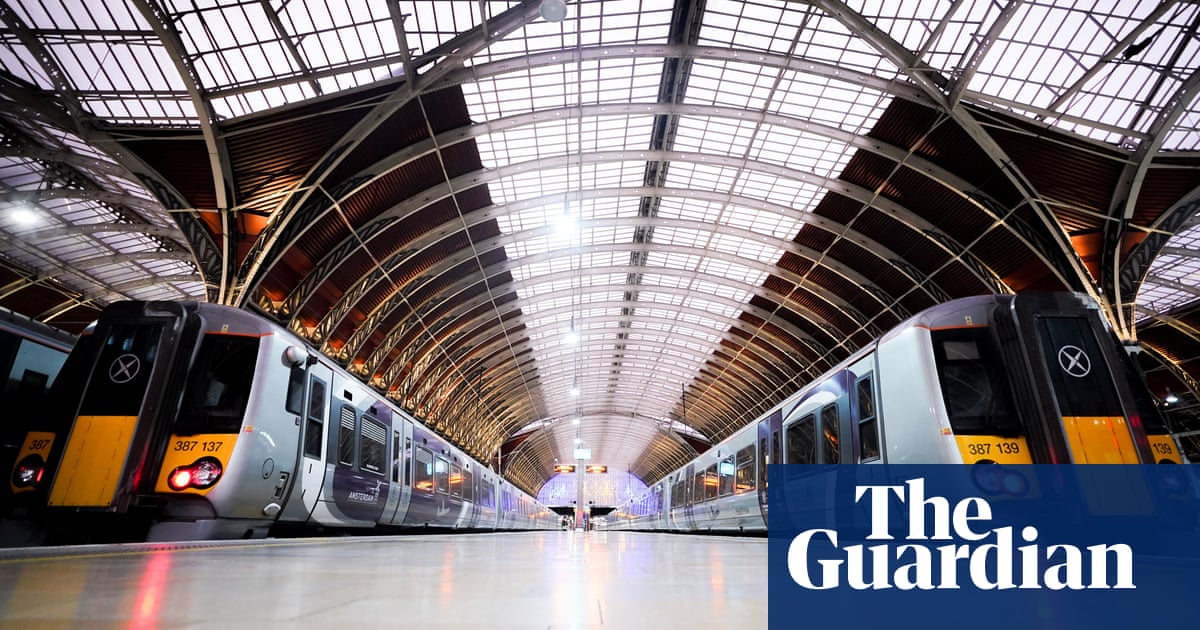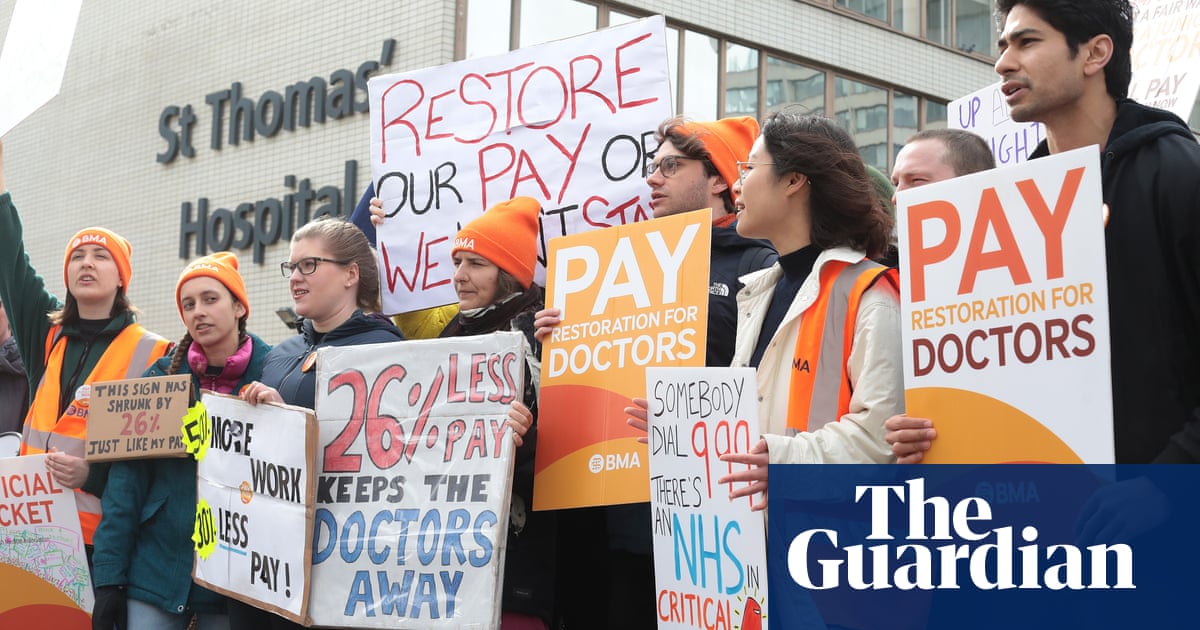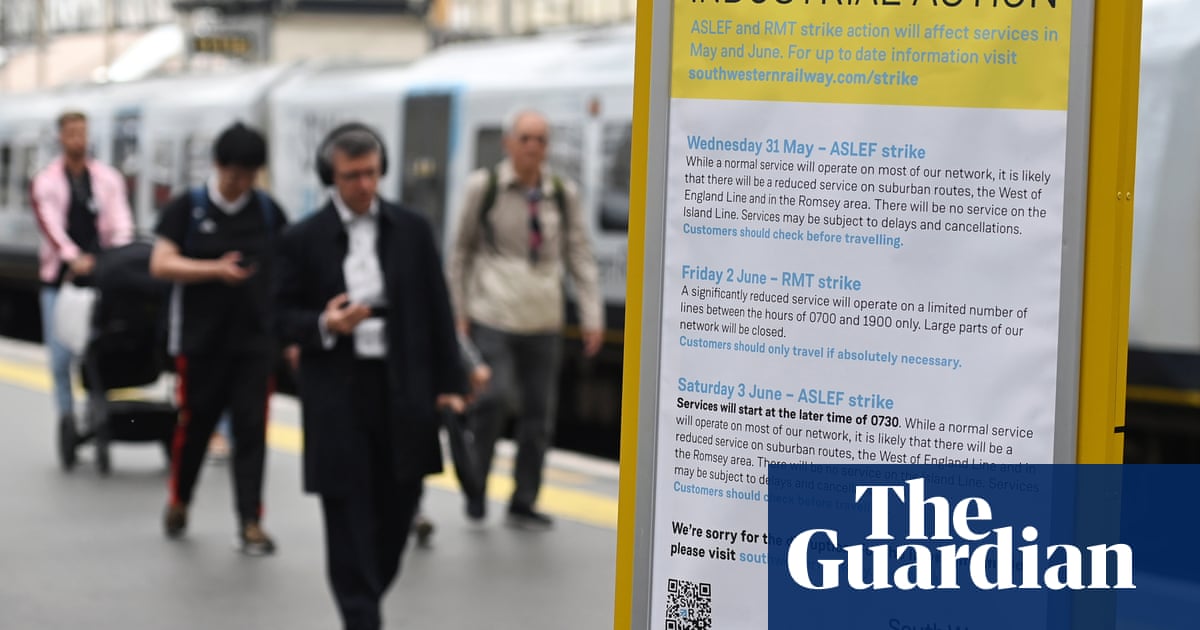
Drivers at 14 train operating companies are to go on strike for two days in August, in a move that will bring many services around Britain to a halt. The announcement was made hours after another union confirmed strike action for July.
RMT members at Network Rail and 14 train operators will strike for two further days on 18 and 20 August in the row over jobs, pay and working conditions, the union announced.
It is staging another walkout three days earlier, with signallers among the 40,000 members taking action, and had previously announced a strike for 24 hours on 27 July – the day before the Commonwealth Games opens in Birmingham.
The union’s general secretary, Mick Lynch, said: “The rail industry and the government need to understand that this dispute will not simply vanish. They need to get serious about providing an offer on pay which helps deal with the cost-of-living crisis, job security for our members and provides good conditions at work.”
It came after an announcement of unusually widespread industrial action by the Aslef union, which will bring about 6,000 more drivers into the fray in the national rail dispute.
The government described Aslef’s announcement as “incredibly disappointing”.
The companies involved in the RMT strikes are: Network Rail; Avanti West Coast; c2c; Chiltern Railways; Cross Country Trains; East Midlands Railway; Great Western Railway; Greater Anglia; GTR (including Gatwick Express); LNER; Northern Trains; South Eastern; South Western Railway; Transpennine Express and West Midlands Trains. The Aslef strike will involve Chiltern, Great Western Railway, Greater Anglia, Hull Trains, LNER, London Overground, Southeastern and West Midlands rail services.
Six of the companies voted by overwhelming majorities for strikes this week.
At the other two companies where ballots closed earlier, Greater Anglia drivers will also strike on 23 July, while Hull Trains drivers will take industrial action this Saturday and Sunday, and on 23-24 July.
Further Aslef ballots will close at Avanti West Coast and CrossCountry on 27 July.
Strike ballots at Northern and TransPennine Express, where drivers also voted for action this week, are being rerun by the union after issues were raised by the train companies.
Members of the TSSA union at Avanti West Coast will also strike on 27 July, coinciding with the RMT action.
Mick Whelan, the general secretary of Aslef, said the union did not want to strike but had been forced to by train companies failing to offer a pay rise after a three-year freeze.
Whelan said: “We don’t want to go on strike – strikes are the result of a failure of negotiation … We don’t want to inconvenience passengers – and we don’t want to lose money by going on strike.
“But we’ve been forced into this position by the train companies, driven by the Tory government. The drivers at the companies where we are striking have had a real-terms pay cut over the last three years – since April 2019.
“And these companies are offering us nothing, saying their hands have been tied by the government.”
He said the union remained open to talks. The Aslef action, like the RMT’s, is likely to affect the opening days of the Commonwealth Games, as West Midlands trains serve multiple venues there, including the aquatics centre.
The transport secretary, Grant Shapps, said: “It’s incredibly disappointing that, just three days after their ballots closed, Aslef bosses have already opted for destructive strike action, instead of engaging in constructive talks.
“Our railway is in desperate need of modernisation to make it work better for passengers and be financially sustainable for the long term. I urge union bosses to reconsider this divisive action and instead work with their employers, not against them, to agree a new way forward.”
Andrew Haines, chief executive of Network Rail, said: “By announcing even more strike dates, the RMT has dropped any pretence that this is about reaching a deal. It’s clear the best interests of passengers and our staff are taking second place to the union’s bosses’ political campaign.”




